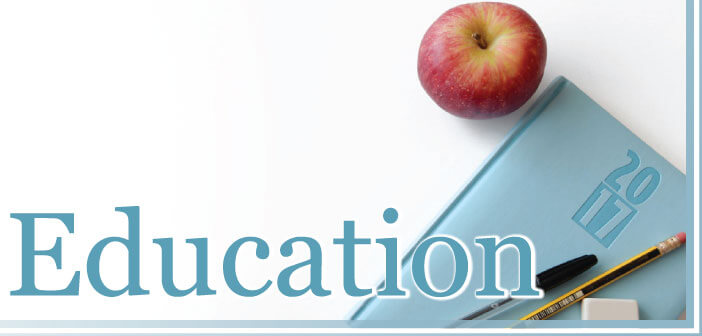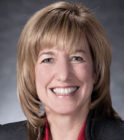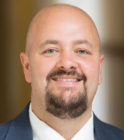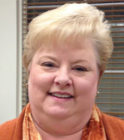Education in Omaha, NE 2017
We’re lucky to live in a community that strongly values and supports education, and as such, one that’s diverse in its programs and offerings available to students of all ages. From fantastic programs that prepare little learners for the classroom, to our excellent public and private K-12 schools, and on to prestigious post-secondary institutions and other notable continuing education programs, there’s no shortage of opportunities to learn and grow personally and professionally.
Particularly for those who intend to pursue a college degree of some sort, there’s so much diversity just in that area alone. With the uptick in student population has come exciting growth and expansion that will bring even more opportunity to future generations.
Since business is our forte, we consulted with Kathy Farrell, Interim Dean at the UNL College of Business Administration and State Farm Professor of Finance for the inside scoop. She definitely didn’t disappoint, providing a detailed account of what’s been in the works to date and what can be expected for the future of the CBA.
“The new $84 million, 240,000-square-foot College of Business building is the largest academic building project in the recent history at the University of Nebraska–Lincoln. Located at 14th and Vine Streets, the new building is the east bookend for Memorial Mall looking west toward Memorial Stadium. Architects for the project are Robert A.M. Stern Architects of New York and Alley Poyner Macchietto Architecture of Omaha. The new building will serve as a central gathering place for the CBA community and will be a welcoming place for the university and larger business community. It offers endless possibilities for the Big Ten College of Business, including interactive learning in state-of-the-art classrooms, one-stop student support services, cutting-edge technology, and space to host many events in the future.
Duly notable, the Clifton Strengths Institute was established by Gallup and the Clifton (Foundation) Family $30 million donation made in 2015 and is the only strengths research lab hosted at a college or university currently. The institute’s programming is designed to identify and maximize the talent of college students, faculty and staff to guide their personal, professional and leadership development through the use and application of strengths-based sciences. Every business student identifies their strengths through the Clifton StrengthsFinder assessment and receives one-on-one strengths coaching through an eight-week course their freshman year. Currently, CBA is the only institution to offer all students the one-on-one coaching. Throughout their time at CBA, students also revisit their strengths in the Professional Enhancement Program (PrEP) annually. The institute also positions students to develop entrepreneurial talent and leadership skills to build businesses, teams, and communities through the Clifton Builders program. Students, groups, and organizations within the university can also receive strengths coaching and workshop training.
All student services, such as undergraduate advising to assist students with planning their courses and career services who help with resumes, mock interviews, and internships, will be located on the first floor of the new building along with a Trade Room and the Clifton Strengths Institute. There will also be a student-operated store, now called the Husker Lab, that will serve as a hands-on learning environment. The sales data from the store will also be shared across the college to use in projects for all majors. There are so many new opportunities for students, faculty, and staff in the new building which opens this August 2017.”
She also details highlights from other areas that have been developed within the CBA in recent years. “The Center for Sales Excellence prepares students for careers in professional selling and helping to elevate the sales profession. A ‘Top University for Professional Sales Education’ by the Sales Education Foundation (SEF) in 2015 and 2016, the program teaches students how to sell themselves to employers, pitch their ideas and enhance their communication skills. Open to both business and non-business major students, students earn a certificate in professional selling after completing 13 credit hours of coursework. The first group of students enrolled in the sales program in spring of 2014.
CBA is one of 36 university partners with the Chartered Financial Analyst (CFA) designated by the CFA Institute. The CFA Program Partners are high profile universities of global stature that embed a significant percentage of the CFA Program Candidate Body of Knowledge (CBOK) into their programs, including the CFA Institute Code of Ethics and Standards of Professional Conduct. CBA first established its partnership with the CFA Institute in 2008.
The actuarial science program is one of 16 Centers of Actuarial Excellence in the nation as designated by the Society of Actuaries. Programs designated as a CAE must meet eight specific requirements related to degree, curriculum, graduate count, faculty composition, graduate quality, appropriate integration, connection to industry and research/scholarship. The UNL actuarial science first received this designation in 2009.
CBA created the Department of Supply Chain Management and Analytics in 2016 to meet the educational demands students face in both supply chain management and business analytics. In addition to offering the supply chain management major, the department also offers a business analytics minor, and graduate certificates in both supply chain management and business analytics. Dr. Jennifer Ryan, Ron and Carol Cope Professor of Supply Chain Management and Analytics, received the distinction of being the first department chair.
The CBA School of Accountancy ranked third in archival tax research and seventh in archival audit research in the latest Brigham Young University Accounting Research Rankings. The rankings indicate the quality of research and also expectations of publishing in top rated journals. The rankings also model a standard of excellence for those considering entering the Ph.D. program in accounting. In the spring of 2016, the School of Accountancy also began offering a new internship program which split the spring semester between an eight-week tax or 10-week audit internship partnered with six-week classes. This allows students to determine whether public or private accounting works best for them without delaying graduation. Prior to this new option, students often had to delay graduation to take a semester off to complete an internship.
We’ve also seen an increase of online MBA students for the fall. Our online MBA ranked number 12 in the world by Financial Times and 21st in the nation by U.S. News & World Report. ”
Concordia University, Nebraska is another great option to consider. It was recently ranked in the top 150 by U.S. News & World Report for the 2017 “Best Online Education Program.” Concordia launched the online M.Ed. in 2011 and has seen steady growth in both students and number of programs.
“Our Master of Education programs in Education Administration, Literacy, Special Education, Curriculum & Instruction, Early Childhood, and Teaching English to Speakers of Other Languages (TESOL) have been designed by seasoned administrators and classroom teachers to provide our students with a dynamic experience in gaining the knowledge that will not only help them become better educators, but also leaders in their schools and districts,” said Jonathon D. Moberly, Dean of the College of Graduate Studies and Adult Education at Concordia University, Nebraska. “These programs have held accreditation through the National Council for Accreditation for Teacher Education (NCATE) since their inception and are now accredited by the Council for Accreditation for Educator Preparation (CAEP). We are honored that our Master of Education programs have been recognized in this way which is a strong testament to the work of our Master of Education Program Directors.”
Concordia University, Nebraska, founded in 1894, is a fully accredited university. With its main campus in Seward along with a location in the Fallbrook area of NW Lincoln, Concordia currently serves more than 2,600 students. Concordia offers more than 100 undergraduate, graduate and professional programs in an excellent academic and Christ-centered community that equips men and women for lives of learning, service, and leadership in the church and world.
Also among the highlights of Concordia’s degree programs is an MBA program, which was restructured a few years ago to a cohort model. Designed with both traditional and non-traditional students in mind, it boasts a well-networked program to balance work and studying that provides students with hands-on experience. Dean Moberly adds, “The Concordia University Nebraska MBA Organization Development Clinic that began in May of 2015 remains one-of-a-kind for MBA programs in the Lincoln area, providing students with hands-on experiences working with real organizations that need help while receiving course credit.
The Organization Development Clinic strives to assist entrepreneurs, non-profit organizations, and existing small businesses whose values and missions align with Concordia University Nebraska. Concordia University Nebraska MBA students and faculty collaborate with these clients to assure a high-quality service is provided through a dynamic learning environment that promotes academic excellence and the integration of faith. Businesses and organizations who are interested in this opportunity are welcome to contact Dr. Shannon Leinen, MBA Program Director, at (402) 643-7376 or via email at shannon.leinen@cune.edu.”
There is also plenty of diversity to be found in our K-12 schools. Throughout the grade levels, school is challenging at times for all students, but can be tougher for some than others. We’re beginning to find more institutions here in the Omaha Metro area that are taking this into consideration and offering specialized programs and curriculum in order to positively influence and improve student outcomes. While there’s no one right path to success for all, important work is being done every day to ensure there is a right path out there for everybody. Heartland School is a great example, with the mission “to provide educational services to students (K-12) who are verified behaviorally disordered, in a therapeutic success-based program.”
“Heartland School team provides a physically and emotionally safe environment where students gain knowledge and skills which will make them successful and productive,” says Heartland School Principal Mary Quiroz.
“Our academic program is individualized and designed to minimize any interruption to the student’s educational achievement and goals. Heartland School is approved by the Nebraska Department of Education as a Level III Educational Service Unit. All staff and administration are trained to address the needs of the student in a supportive, safe, and enriching environment.
Heartland School students and staff work in conjunction to achieve the following goals: *Students will gain knowledge and skills through an individualized education program developed by the Heartland School team, the student, parents, and the school district. *Students will gain increased mental health through a success-based nurturing program in an environment with a low student to teacher ratio. *Students will develop a positive self-image, responsibility to self and others, and the community and the ability to function as a self-directed individual in mainstream and adult life. The path to new skill development and recovery is one that we will travel together.
Each year it seems the needs of our children rise. Violence in the community finds its way into the schools and is compounded by the unmet basic needs of many of today’s kids putting more and more pressure on schools, school staff, school budgets, etc. Schools are continually challenged to find new ways to gather parental support and help in the education of their children. For some, the stress on the family to meet a continual barrage of needs causes things to go by the wayside. Very often, the kids in an alternative education environment have or have had serious mental illness in the family, and many times themselves. One or both parents may or may not have been incarcerated at some point forcing kids into the foster care system or placement with relatives, adding more pressure. Also, unfortunately, most of the kids who are considered at risk have been victims of sexual, physical and/or emotional abuse, all of which challenges kids in the learning environment.
Since 2012, after an in-depth analysis of policies and procedures, the Heartland School has been revamped. The staff and administration have reworked the entire program’s policies and procedures, and constant ongoing analysis has shown that the school districts are placing more and more of their students at Heartland School.We have made a conscientious change in our structure and programming that presents a calm, highly structured academic day that includes time for student creativity and physical engagement in structured activities as well as allowing the students with special skills such as art and music a chance to access further individualized programming at little to no cost to the school districts. Heartland School also has a full-time mental health team that is available for kids to access as well as to assist those in crisis.
Heartland School has been most noted for its relationship building efforts with the students and families. We believe that through our relationships with our students we can help them achieve what they are most capable of achieving. Our relationships and time spent with school district representatives have also contributed to our effectiveness in providing the best academic experience for their students.
We are always working on adding additional support services for our students and families in the area of mental health. One plan that is currently scheduled to be rolled out in the new school year is a sensory room. The literature has shown that this can be a highly effective strategy for students. We are also exploring new food service options to provide a little more variation in food choices and selection as well as quality and serving portions. Access to quality nutrition lunches will have a huge impact on the lives of our students. There are times when school lunch is the only meal our students will get and therefore, this is a critical area in the care of kids. Until basic needs are met, kids will be challenged in the learning environment.”
This is just the tip of the iceberg on what these prominent schools have to offer, and as such, an encouraging glimpse into the diversity of options already accessible to students in the area. Additionally, there’s so much potential that’s still yet to be seen and explored, with many more new programs and innovative approaches to learning methods on the horizon a virtual certainty. It just goes to show that the future of education remains as bright as that of the students in our classrooms. As far as the whole of what’s currently available, as you can see there’s substantial opportunity out there for those who are interested in continuing their education and also for those who are looking for alternatives to the traditional classroom model. Furthering one’s education at any age requires commitment and tenacity, yet has the potential to be rewarding beyond measure as long as you find the right fit. We encourage you to explore your options, because you may be surprised at what direction it takes you.




